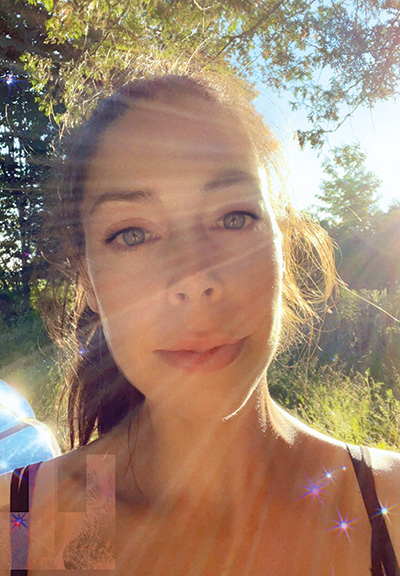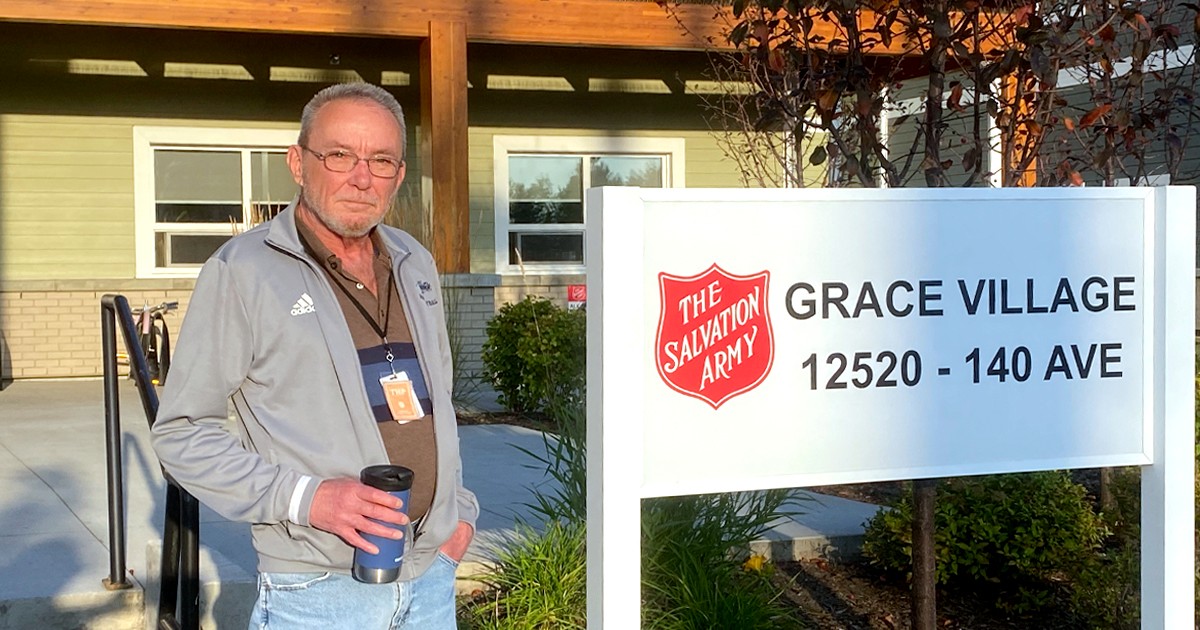Addiction and substance abuse are often connected to a difficult childhood. In Nikoleta Curcin’s case, there were a combination of factors that led her into addiction, but lack of care and connection was not one of them.
“I had a perfect, ideal childhood,” she says. “My parents were wonderful people.”
However, when Nikoleta went to high school, she started to feel that she didn’t belong. When life became overwhelming, her family sought counselling, but the psychologists she saw brushed off her feelings as hormones.
“My emotions controlled me,” Nikoleta recounts. “For the longest time, I didn’t trust myself.”
In her mid-teens, Nikoleta started to experiment with drugs, and by 17, she was taking cocaine daily and continued to use for a year. Around that time, she started dating Sean,* who sold drugs. Nikoleta decided a few months into their relationship that she didn’t want to use anymore and stopped. However, that wasn’t the end of addiction for her.
The Descent
After a few months of dating Sean, Nikoleta realized she was in an abusive relationship. It would be four years until she could get away from him.
“The relationship affected me a lot, and my perception and beliefs about myself, even up until recently,” she recounts. “It got really messed up toward the end. I really believed he would kill me.”
Sean was arrested and went to jail, and Nikoleta took over the drug sales, but she, too, was apprehended. After her release, and his death from health complications, Nikoleta avoided drugs for eight years, until she met Jude.*
While on vacation in London, England, Jude asked Nikoleta if she wanted to take some recreational drugs. She agreed.
During the trip, they met a man who offered them heroin instead ofwhat they had already been taking.
“I had no idea how to even do it,” she says. “I had to ask the guy how to take it.”
Though Nikoleta stopped using upon her return home, when she journeyed to London the next summer, she fell back into addiction.
“Back in Canada, I approached a guy who looked like he might have a connection,” Nikoleta says.
From then on, she was in the grip of heroin and fentanyl.
“I had always felt overwhelmed by my emotions and a deep emptiness all the time,” she remembers. “Heroin helped numb my out-of-control emotions and helped me detach from myself and the world. From a young age, I dreamt of paradise. I felt that the world was supposed to be this beautiful place, and it disappointed me. I couldn’t accept the misery and cruelty I saw, but I also felt powerless in the face of it all.”
"I love recovery. I love the feeling of growing. It's so exciting!" NIKOLETA CURCIN
The Bottom
After another arrest, Nikoleta found herself at a crossroads. She had the option of either going to prison or attending the Toronto Drug Treatment Court Program. She chose the latter because she thought it would be easier.
“I thought, OK, it will be a year, then I can move on with my life. It wasn’t so easy,” she chuckles.
Nikoleta doesn’t remember many of her interactions. But one person does.
Major Steve Manuel was then the Salvation Army chaplain at Toronto’s Old City Hall courthouse and one of the program team members. Often, he would be the first point of contact for program attendees, providing coffee and snacks in his office before the Tuesday and Thursday meetings.
Major Steve was also the first person many of the attendees would seeif they were arrested during their time in the program.
Nikoleta was in the program for three years. During that period, she was in and out of rehabilitation centres and relapsed multiple times. Eventually, she had the worst and hardest relapse of her life.
“It was three months long and I barely remember any of them,” Nikoleta recalls. “I have no idea how I even fed myself or who the people around me were. I thought, I have to get away from this. I called my therapist from Drug Treatment Court, and she suggested I go to detox. I couldn’t see another way out.”
Nikoleta knew it would be awful, but she also knew it was her only chance at recovery.
Addiction is a traumatic experience, and within the cycle of addiction there are traumas everyday. The sickness that comes is a trauma in itself and can strike terror in a person. In detox, Nikoleta was sick for 21 days.
“For two weeks, I couldn’t eat or drink water,” she says. “Each time I tried to quit, the next time would be even harder.”
The Recovery
After detox, Nikoleta was transferred to the women’s inpatient unit. There, she saw a psychiatrist who gave her tools to work through her own traumas.

“It gave me a groundwork to overcome trauma on my own,” she says. “She had me write down how to process it, the steps to take and how to change my thought process about the events.”
Eventually, Nikoleta persevered into recovery, and Major Steve was the chaplain she encountered all the way through.
“A lot of the people you see in court, you only meet once. Drug Treatment Court is different; you can build a relationship,” Major Steve says. “There are people you celebrate with, and Nikoleta was definitely one of those.”
When COVID-19 hit, Nikoleta found herself with time to do one thing.
“Self-reflect,” she says with a smile. “My self-worth was tied to productivity and achievement instead of who I was. It took me a long time to flip that way of thinking.”
Nikoleta learned to forgive herself and to have self-compassion.
“I had to be responsible for my own conscience,” she reflects. “I had to discover what my values were. I had been so far away from myself before. I wanted to embody my values.”
Nikoleta discovered what her ultimate value was and continues to work on it every day.
“It’s freedom,” she states proudly. “Internal freedom, the freedom of your mind.”
These days, Nikoleta maintains a passion for education and intends to pursue further academic studies.
“I love recovery,” she says. “I love the feeling of growing. It’s so exciting!”
Nikoleta now works as a consultant with the Canadian Mental Health Association and is a peer researcher with the justice and equity lab at St. Michael’s Hospital in Toronto.
“For the first time, I feel fulfilled, and I don’t need anyone else to complete me. I’m good just on my own,” she says. “Our time on this earth is finite, and all the more precious. I want to have an adventure and learn as much as I can while being true tomyself, now that I know who I am.”
*Names have been changed.
This story is from:










This story brought out so much emotion me, the tears just flowed, and I feel somehow a bit cleansed. What a beautiful soul. Although I've never been an addict, I relate to so much of this story.